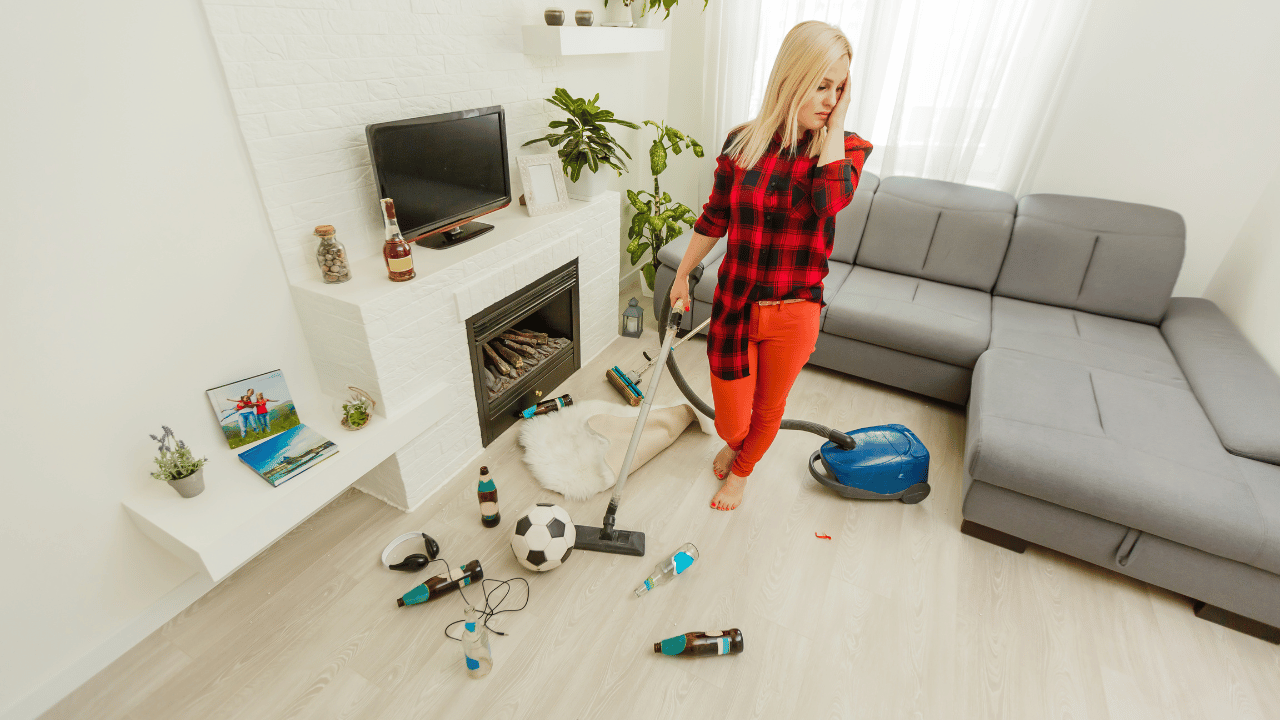How A Cluttered Home Affects Your Mental Health: How To Declutter Your Pad In Style With 5 Simple Steps
Are you feeling overwhelmed and stressed out? It might be time to declutter your home! Find out how a cluttered home can affect your mental health and get the tips you need to start tidying up with our article on the topic!

Clutter can be a major source of stress and anxiety in our lives. Studies have shown that disorganization and clutter can lead to increased feelings of depression, fatigue, and difficulty concentrating or focusing.
It can also affect our ability to make decisions, as it increases the amount of mental energy that must be used for decision-making. This can lead to procrastination, avoidance, and feeling overwhelmed.
The key to reducing the negative effects of clutter is organization. Taking the time to organize your belongings can help reduce stress levels and improve mental clarity.
De-cluttering can help create a sense of order in our lives, which helps us feel more relaxed and at ease. It also helps us to identify and prioritize tasks, allowing us to focus on what is important.
Organizing our space can also have a positive impact on our sense of well-being. A cleaner, more organized home can help reduce feelings of anxiousness and improve overall mood. It may even give us a greater sense of accomplishment and pride in our living space.
Organizing and de-cluttering our living spaces is an important step to maintaining good mental health. It can help us feel more in control, reduce stress levels, and improve our sense of well-being. Taking the time to organize our homes and offices can be a simple way to make a big difference in our lives.
By taking the time to organize our living spaces, we can help reduce stress and improve our mental health. A cleaner, more organized home can create a sense of order in our lives, allowing us to focus on what is important, make decisions with ease, and feel less overwhelmed.
It can also give us greater satisfaction with our environment, helping us to feel more relaxed and at ease. By organizing our belongings and de-cluttering, we can help create a calmer and healthier environment for ourselves.
Organizing our living spaces is an important step in maintaining good mental health. With these simple tips, you can take control of your space and start creating a cleaner, more organized environment for yourself.
Organizing and de-cluttering your home can be a daunting task, but it's not impossible if you break the process down into smaller, manageable steps.
Here are five steps that will help you get started on your journey to a more organized and clutter-free living space:
1. Start small: Pick one room or area to start in and work your way up from there. Removing clutter can be overwhelming if you try to tackle too much at once, so aim for about one hour per room or area.
2. Create a plan: Before you start organizing, make sure you have a clear plan of action. Decide on the best way to organize each space, as well as how you’ll store items when they aren’t in use.
3. Sort your belongings: This is an important step to determine what you need and what you don’t. Start by separating everything into three piles: keep, donate, and discard. This will help make the process more manageable.
4. Take inventory: Once you’ve sorted your things, make an inventory of all of the items that you wish to keep and store them accordingly. Label bins and containers so that you can easily find what you need in the future.
5. Establish a system for upkeep: The key to avoiding clutter is to establish a system for upkeep. This means regularly sorting through and donating items that you no longer need or use, as well as returning items back to their designated space after use. Following these steps can help ensure your home stays organized and free of clutter.
Organizing and de-cluttering your home doesn't have to be an overwhelming task. By following these five steps, you can create a clutter-free and organized living space that makes your home more enjoyable to live in.

